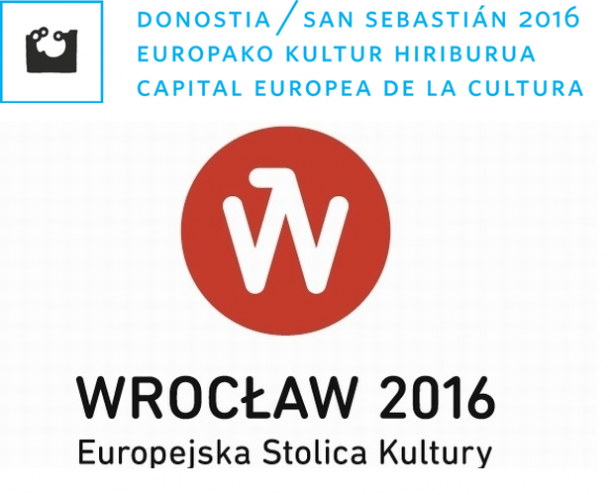BLOG
San Sebastián and Wroclaw: European Capitals of Culture
06.11.2015 //
What lies ahead of us after eight years of preparation is 400 projects, 1,000 cultural events, 8 curators setting the programme in various fields of culture, and thousands of people who dedicate time. And all of this to best promote the European Capital of Culture 2016, i.e. Wroclaw. The first rendition of the ECC programme for the coming months has just been presented at the Stadium.
When in 2008 the decision was made to take part in the competition for the ECC 2016, the stakes were high from the very start. Wroclaw’s application, “Space for Beauty” proved the best in 2011 and won (the second city with the title of the European Capital of Culture was San Sebastian, Spain). I believe this may be the most important year in the post-war history of Wroclaw. Our wish and aim is to increase participation in culture, also, we hope to increase tourism. We want Wroclaw to be a very open metropolis on the map of Europe and the world – said Rafal Dutkiewicz, Mayor of Wroclaw, at the presentation of the programme at the Wroclaw Stadium.
Long-term Goals of the European Capital of Culture Wrocław 2016:
What we aspire to, for example:
• Citizens will co-create culture, and will benefit
from its variety without limits.
• They will have easier access to both cultural
and educational programmes.
• The city will develop with culture and through culture. European cultural variety will be more readily presented in actions by the culture sector.
• Wrocław organizations and partners from around Poland will work closer and develop cooperation in the area of culture.
• Creators of culture in Wrocław will cooperate more readily with one another and exchange experiences.
• The culture sector will gain highly qualified professionals, trained to coordinate cultural projects locally and internationally, both traditional and innovative, and as a result actively supporting the development of creative industries.
• Wrocław and the region will be more recognizable within Poland and across Europe.
• Citizens will be more aware of the cultural heritage of Lower Silesia, and prouder of it.
• The number of tourists visiting Wrocław will double.
• The private sector will be more involved in supporting cultural initiatives.
• Financial means allotted for implementation of the European Capital of Culture Wrocław 2016 project, or ECoC Wrocław 2016, will be spent efficiently and will turn into an actual, effective and long-term investment.
Sources: http://www.wroclaw.pl/ & http://www.nowyportal.wroclaw2016.pl/


